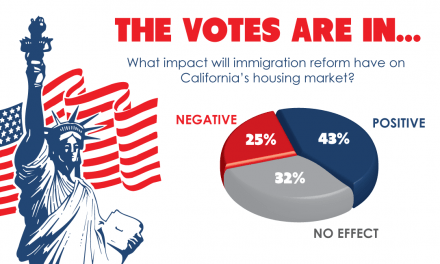If Zillow and Trulia — the two leading online real estate marketing and home search brands — become one, what does that mean for your real estate business?
first tuesday readers split 51-49 yes-no on this contentious issue. Just under half think the merger either has no effect or will benefit their real estate business. Slightly more than half fear dire consequences in a less competitive environment.
Both Zillow and Trulia make the bulk of their revenue from agent advertising. Concerned agents believe a merger will reduce competition in the online home search field, and lead to higher advertising rates.
However, this concern overstates the potential impact the merger has on real estate marketing. Zillow and Trulia’s combined advertising revenues account for just 4% of what agents spend on marketing their listings each year nationally.
Thus, online home search tools like Zillow, Trulia, National Association of Realtors (NAR)-affiliated Realtor.com, Redfin and others are just one part of the marketing puzzle for buyers, sellers and their agents. For agents, they are but one source of exposure to leads and potential clients. For buyers and sellers, they serve as a starting point in the search for a home or the decision to sell, but aren’t a replacement for the expert guidance and care of a licensed agent.
NAR’s double standard
NAR strongly opposes the merger, going so far as complaining to the Federal Trade Commission (FTC) on antitrust grounds. NAR’s protests belie the trade union’s real concern, which has nothing to do with advertising fees. Online home searches, open to anyone with an internet connection, are an increasingly popular alternative to the NAR- controlled, limited-access multiple listing services (MLS).
As of late December, the merger is still on the table. The FTC, which reviews large corporate mergers for potential antitrust issues, extended the date for a decision on the proposed union from September 2014 to February 2015. Zillow and Trulia shareholders approved the deal in mid-December, and final consummation is set to take place sometime after the beginning of February, pending the FTC’s decision.
It remains to be seen whether NAR’s monopolistic arm is long enough to quash this latest threat to its bottom line.















I Have An Issue With This Article……..
Please Give An Explanation To Why First Tuesday Is Accusing NAR Of Being A ” Monopolistic”